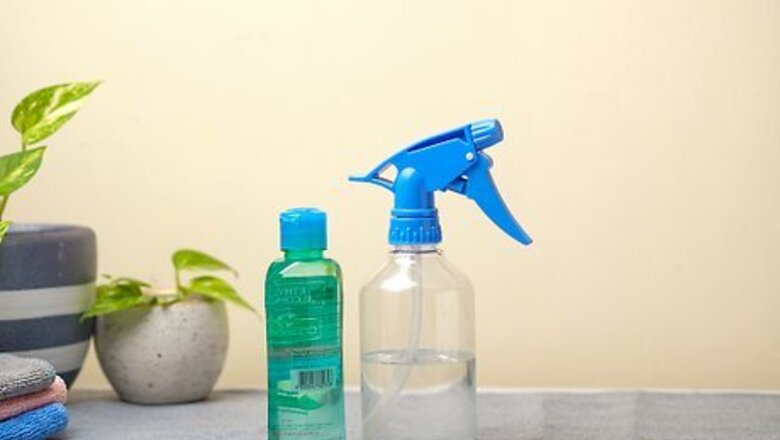
views
Note: Vinegar is not effective against the COVID-19 virus. Solutions with less than 60% alcohol are also not effective against the novel coronavirus. Use caution when making your own disinfectants, since it is difficult to ensure effectiveness.
Making Rubbing Alcohol and Hydrogen Peroxide-Based Disinfectants
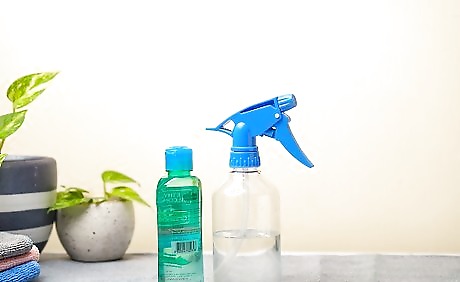
Use basic undiluted rubbing alcohol. Choose a product that has at least 70% alcohol content, or else it won’t effectively kill bacteria or viruses. Put the rubbing alcohol in a spray bottle so you easily apply it to any surface. This cleaning solution should be effective against coronavirus. Do not dilute your rubbing alcohol with water since it is easy to make an error and end up with a percentage that would be ineffective!
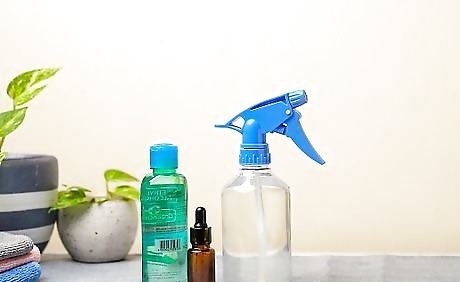
Make a herbal rubbing alcohol spray. Pour 10-30 drops of thyme or another essential oil of your choice into an 8 fluid ounces (240 ml) glass spray bottle. Fill the rest of the spray bottle with rubbing alcohol that has at least 60% alcohol content. Shake the bottle to mix the ingredients and store it in a cupboard or pantry. This cleaner is also effective to use for the novel coronavirus.
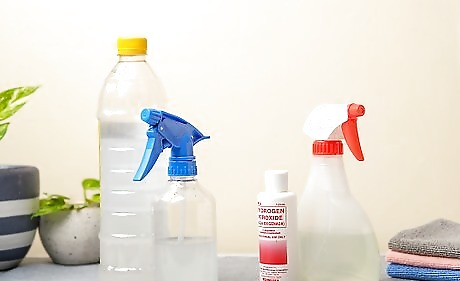
Use a vinegar and hydrogen peroxide combination. Vinegar and hydrogen peroxide work well to disinfect, but they should not be combined in a single container as they make a peracetic acid which can be hazardous. Instead, add undiluted white vinegar to one spray bottle and 3% hydrogen peroxide to another. You cannot use this cleaner to combat against coronavirus. To use, clean a surface, then spray it with one mixture, let it sit for about 5 minutes, then wipe with a clean cloth and spray with the other. Let it sit for 5 minutes and then wipe with another clean cloth. It does not matter if you start with the vinegar or with the rubbing alcohol.
Making Vinegar-Based Disinfectants
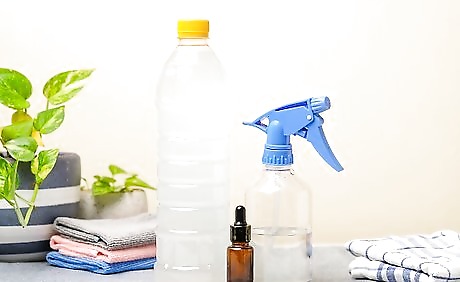
Make a basic vinegar-based spray. In a standard-sized glass spray bottle, add 1 part water, 1 part vinegar and 5-15 drops of 100% essential oil or lemon oil. You can use whichever essential oil whose scent you prefer, or customize the scent according to what room in your home you are cleaning. Vinegar-based disinfectants will not work to disinfect surfaces from viruses, including the novel coronavirus. Lemon essential oil is traditionally used to clean the kitchen, as the lemon scent can neutralize strong kitchen smells. Tea tree and eucalyptus oil are great for neutralizing bathroom odors. You may prefer to use milder smelling essential oils such as chamomile or vanilla in the parts of your houses where you are not worried about eliminating odors. Essential oils can sometimes react with plastic, which is why you should use a glass spray bottle.
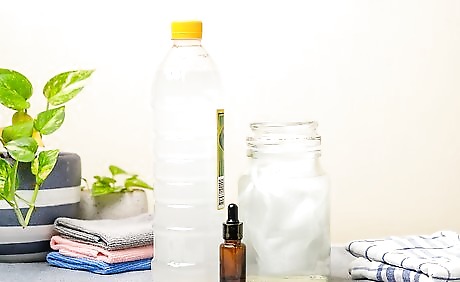
Make disinfectant wipes. If you want to make disinfectant wipes rather than a spray, follow the same recipe as if making a basic vinegar spray, but instead of putting the ingredients in a spray bottle, put them instead in a large glass jar and swirl them to combine. Cut 15-20 pieces of cloth into 10 in (25 cm) squares and place them inside the jar of cleaner. These wipes do not disinfect surfaces contaminated with coronavirus. Press down the cloths inside the glass jar so that they are submerged and can soak up the cleaner. Then place the lid on the top of the jar and store the wipes in a cupboard or pantry. To use the wipes, take out a wipe and wring it out to remove excess cleaner, then use it to wipe surfaces clean.
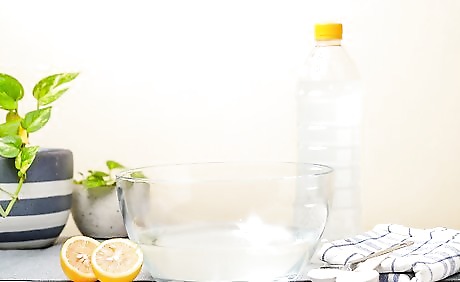
Make a vinegar and baking soda spray. In a clean bowl or bucket, add 4 cups (950 ml) of hot water, ⁄4 cup (59 ml) of white vinegar, and 2 tablespoons (28.8 g) of baking soda. Mix until the baking soda dissolves, then cut a lemon in half and squeeze both halves into the solution. Drop both rinds of the lemon into the mixture and wait for it to cool. Vinegar and baking soda are not effective against COVID-19. Once cooled, add 4 drops of lemon essential oil or the essential oil of your choice. Strain the mixture through a fine sieve to remove any lemon pulp, seeds or rind, then transfer the mixture into a spray bottle.
Using the Disinfectant Spray
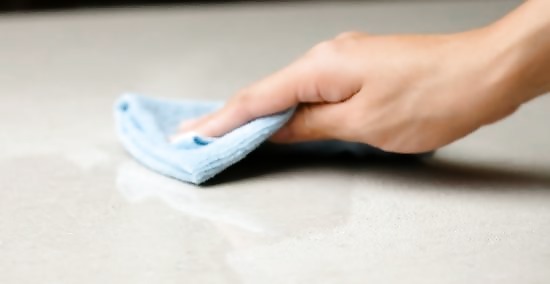
Clean the surface. Disinfecting does not clean the surface or remove dirt or any other buildup, so it’s important to thoroughly clean the surface before disinfecting. Clean with a natural or organic cleaner if you are looking to avoid harsh chemicals.
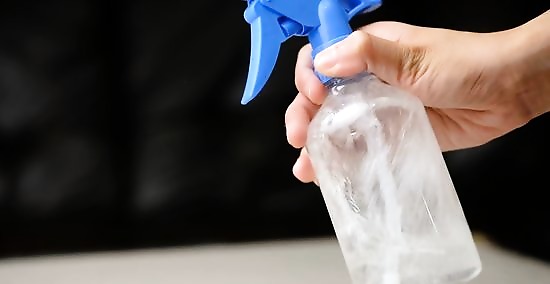
Shake the spray. Shake the spray thoroughly to make sure that all the ingredients of the spray are mixed and that the spray will be effective.
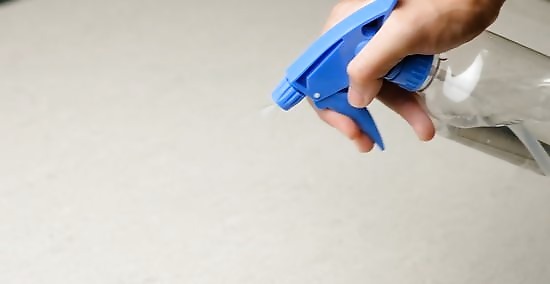
Spray the surface thoroughly with disinfectant spray. Hold the spray bottle of natural disinfectant an arm’s length from the surface you need to disinfect and spray thoroughly. Spray all the surfaces you are disinfecting if you are disinfecting multiple surfaces.
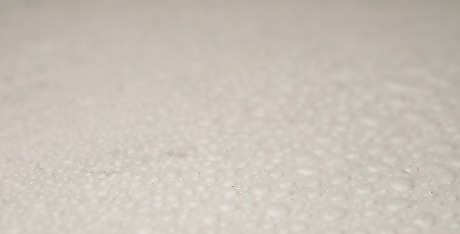
Let the spray sit for 10 minutes. Wait for about 10 minutes to let the disinfectant sit and more effectively attach to and eliminate germs.
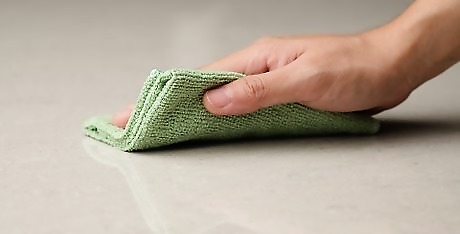
Wipe with a microfiber cloth. After 10 minutes, wipe the disinfected surface with a microfiber cloth. If you’ve cleaned multiple surfaces in a kitchen or bathroom, use a separate cloth for each surface to avoid contamination.















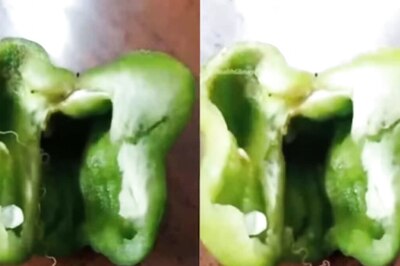

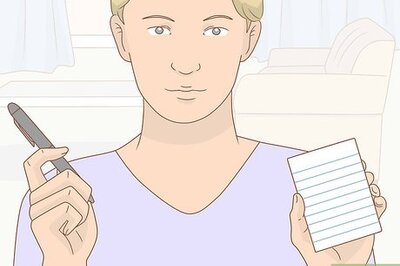
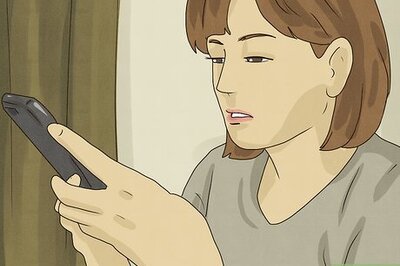
Comments
0 comment